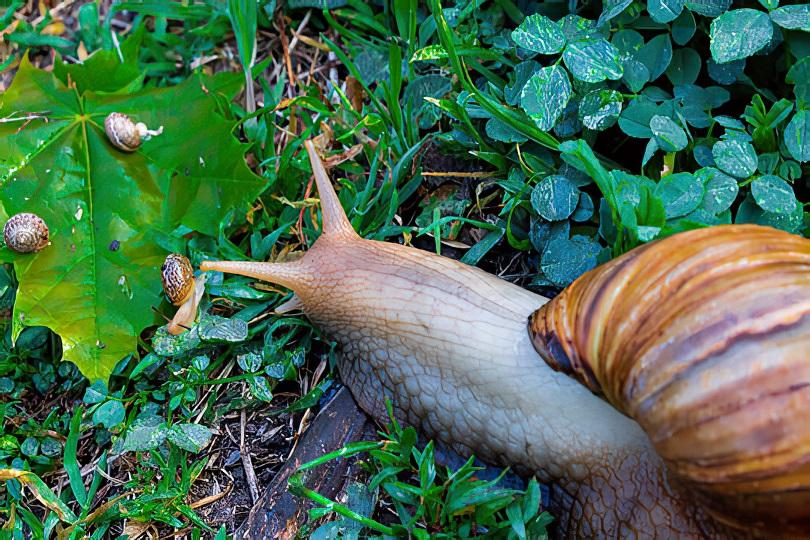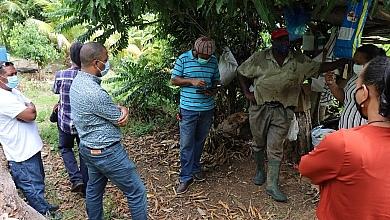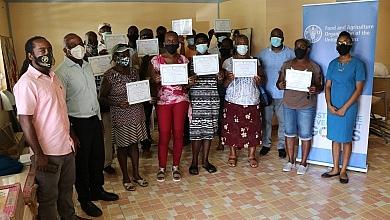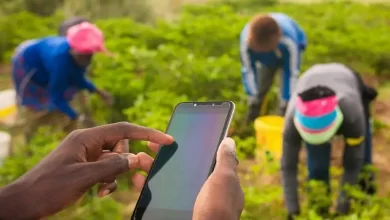Conducting baiting exercises for Giant African snails in April

The Ministry of Blue and Green Economy, Agriculture & National Food Security will be conducting baiting exercises for Giant African snails during the month of April.
Concerns are growing among agriculture officials with the adult Giant African snails spotted in a few communities across the island.
Giant African snails are considered one of the most invasive destructive species and with large populations, can affect up to 500 different plant types.
Agricultural Officer in the Plant Protection and Quarantine Services Department, Kelly Maronie stated that during the month of April, the Division of Agriculture will be conducting baiting exercises.
Maronie added that he would like individuals to adhere to the safety protocols, including closing windows and the securing of domestics animals.
“Again, windows closed during the exercise, keep your animals away from the baited areas at the time of baiting and up to two weeks after the baiting. If we come in a particular location and we notice that there are animals at the location, for example, goat, sheep, and cattle we will not bait that location, and if we do not bait that location that means, therefore, the snails in that location have a chance of breeding and also spreading to outside of that particular area.”
“For the next three weeks in April, we are going to be continuing our baiting exercise to cover Stockfarm and in the north, Dos Dane, Blenhim, Paix Bouche. So next week we will be focusing on Stockfarm and Bellevue Rawle.”
The African Giant Snail not only affects vegetation but can be dangerous to humans as it carries a vector known as the rat lungworm.
Members of the public, are discouraged from handling the snail with bare hands.
This article is copyright © 2021 DOM767








